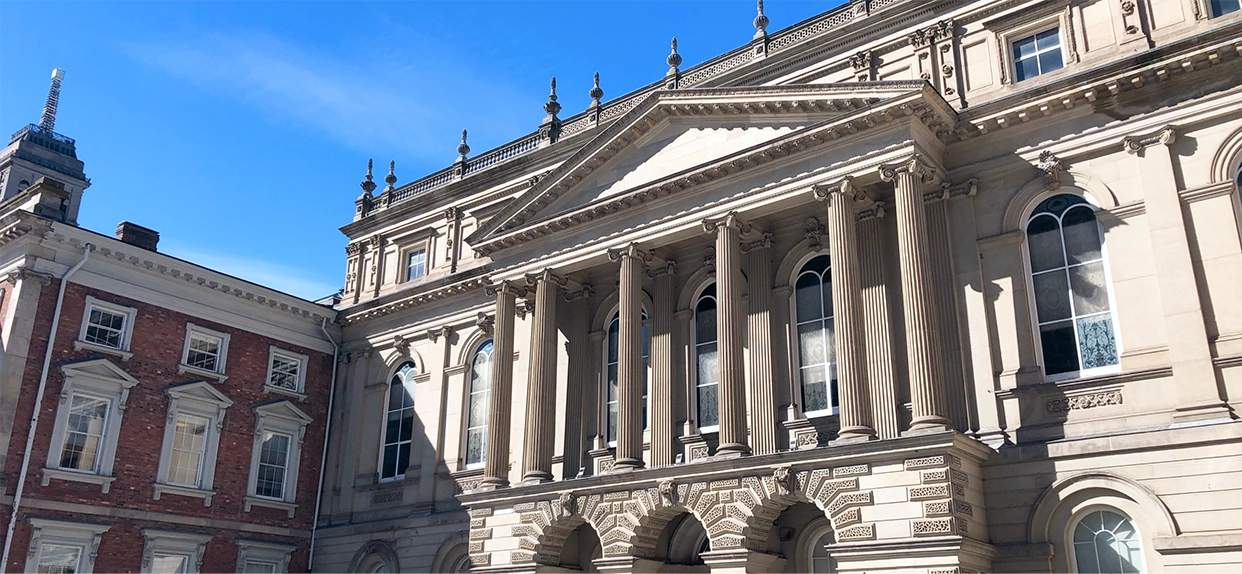Wills Lawyers, Power of Attorney Lawyers


The wills lawyers at Massey LLP know that while most Canadians don’t have a will, 25 per cent of them admit it’s because they don’t know where to start. Then there’s the 2.95 million who do have one, but it’s so out-of-date it means they don’t really have a will – the cornerstone of estate planning. With an out-of-date will, your estate trustee (executor) is likely to face many thorny issues.
Let our wills lawyers in Toronto guide you to making an effective will. Our Toronto wills lawyers make the process straight forward and efficient. Having true peace of mind is knowing that your affairs are in order should the inevitable happen sooner than you may think.
Our wills lawyers have prepared wills for a range of clients from those with average financial means to multi-million-dollar portfolios. Our deep experience and attention to detail in crafting wills, properly executed, ensures your choices will be respected and will stand up to any estate litigation after you’re gone.
Further, our power of attorney lawyers at Massey LLP also handle matters for you in choosing and setting up a power of attorney (POA) to avoid the Ontario Public Guardian and Trustee being appointed if you’re incapacitated. We are experienced in both POA for property (finances) and the POA for personal care (health and welfare) under the Substitute Decisions Act (SDA). Our power of attorney lawyers set out your preferences as guidance if there’s a dispute.
Why you should work with our experienced wills lawyers & power of attorney lawyers
The wills lawyers in Toronto at Massey LLP note that while you’re not legally required to have a will, if you don’t, default rules of property distribution under the Succession Law Reform Act (SLRA) will govern how your estate is divided and your wishes aren’t carried out. When you do have a will, it’s not a good idea to go DIY and risk leaving your estate in shambles, with your loved ones fighting over a poorly made will.
The wills lawyers at Massey LLP understand superstition is another deterrent why people don’t sign a will. But a will is simply a bespoke legal document that outlines what you want to happen to your estate, with someone you trust carrying out those instructions for you, whether that person is a friend, family member or a trust company.
The executor (also known as an estate trustee) pays the debts, funeral expenses, and taxes, arranges the funeral, distributes personal effects, transfers funds to beneficiaries (persons or charities) and, if necessary, holds funds in trust for beneficiaries. Our wills lawyers in Toronto know that once a will is carefully crafted, you have peace of mind.
Our wills lawyers also work with clients to revisit a will periodically reviewing it to ensure this important document still reflects any changes that may have occurred. Was a new grandchild born? Did one of your adult children divorce? Did a beneficiary pre-decease you? Is the estate trustee (executor) you named still the right choice?
Some of those reasons for changes include:
Estate trustee (executor): Our wills lawyers explain that if your estate trustee (executor) moved out of province/country, or you no longer get along your will should be changed to appoint a new one. Estate trustees who live outside the Commonwealth must post a security bond.
Beneficiaries/Wishes: Relationships come and go, and people die, so you will want to update who benefits from your estate to reflect who’s in your life at the end, say our wills lawyers in Toronto.
Moved: Moving to another province or country means you need to update your will as there are different estate laws that apply, warn the wills lawyers at Massey LLP.
Children: If you didn’t have children when your will was written, you must have a wills lawyer review it so that they are provided for when you pass away. Proper contingency planning for minor children is paramount in estate planning
Our power of attorney lawyers add that planning for incapacity with a POA is important because you need someone to act when you can’t.
Our wills lawyers and power of attorney lawyers at Massey LLP, are led by Daniel Nelson, who frequently appears in the media commentating on law changes that can affect wills and powers of attorney. Our wills lawyers in Toronto will ensure your estate plan is in place.

Our wills lawyers in Toronto outline different types of wills and their uses
The wills lawyers at Massey LLP say a will isn’t a one-size-fits-all document and you need to choose which type fits your situation. After all, it is the legal document that spells out your final wishes, so our wills lawyers work with you to determine which is right for you as part of your estate planning.
Our wills lawyers in Toronto note the types of wills, beyond a simple one, include:
Mirror wills – The wills lawyers at Massey LLP say a mirror will is entered into by spouses or civil partners, and while it’s two wills, they are identical, with the same or similar terms. Under a mirror will, the partners leave their estate to each other and mutually-agreed-upon beneficiaries, typically their children. Our wills lawyers in Toronto warn that with this type of will, there is no provision stopping one of the parties from making a new will down the road which can be complicated, particularly if they remarry and there are step-children.
Mutual wills contracts – Our wills lawyers in Toronto explain that a mutual will contract is simply an agreement between a couple that their wills mirror each other, but the surviving partner agrees not to revoke or make an inconsistent version – including upon the death of the other. Our wills lawyers note the courts generally support their use, but there is caselaw like Gefen v. Gaertner or Hall v. McLaughlin Estate, that must be taken into consideration when creating this type of will. Since it is also an agreement, it’s not a good idea to attempt drafting one without the assistance of capable wills lawyers. A main reason for entering into this type of will is, for example, if there are second marriages it prevents the survivor from leaving everything to their own children.
Primary and secondary wills – Our wills lawyers know this is a strategy is to avoid or reduce probate fees. Probate is the process of confirming an estate trustee and validating a will. The primary will governs those assets that require probate, which would include publicly traded shares, large bank accounts, and most land – basically anything where someone else controls access to the property and won’t transfer it to the estate without a probate certificate. The secondary will governs assets that don’t require probate (non-publicly traded shares, personal effects, certain types of land, vehicles, digital assets). The case Granovsky Estate v. Ontario settled this practice. So, if someone passes away with these wills the executor doesn’t have to probate all of them which could mean a considerable savings.
Our wills lawyers in Toronto on recent changes in wills and family law
Our wills lawyers at Massey LLP note there have been recent changes to the laws governing wills and family law, significantly with Ontario legislation crafted with the intention to protect vulnerable seniors from being the targets of predatory marriages.
The wills lawyers in Toronto explain that new legislation under the Succession Law Reform Act (SLRA) means marriage no longer has a legal effect on a will – as of Jan. 1, 2022, it’s no longer the case that a will is automatically revoked on marriage. A testator now must update their will to provide for a new spouse because the previously drafted will stands, despite marriage. There would not necessarily be any provision in the will for that new spouse. However, the spouse does have a right of election under the Family Law Act (FLA) to claim what they would get if they were divorcing.
This new legislation and others are under the Accelerating Access to Justice Act, a large omnibus Bill that amends various Ontario statutes and regulations.
Another new provision under the SLRA addresses the issue of separated spouses by removing their entitlements both under an intestacy and inheriting in a will, say our wills lawyers. They are essentially now treated as if they had predeceased the testator.
Also, our wills lawyers in Toronto note a separated spouse will be treated as predeceased if named as estate trustee and, under the SLRA and the FLA, they are now precluded from seeking equalization of net family property against a deceased spouse’s estate, something they could do before the change. Further, changes to the SLRA under s 4(3) makes virtual signings of wills and powers of attorney to remotely execute them permanent. A wet signature is still required. But what is now permitted is that the witnesses and the testator can be on video together. So instead of one original, there are two or three originals and the testator signs one copy, the witnesses sign the others (one if they are together, two if the witnesses are separate). They are then brought together with special affidavits.

8 bad things that happen when you don’t have a will, from our wills lawyers
Minor children: According to our wills lawyers in Toronto if you leave behind minor children, and the estate is worth more than $200,000, they receive part of it as spelled out below, but then a special agency of the Public Guardian and Trustee, called the Accountant of the Superior Court holds their inheritance until they become age 18 under Ontario’s Age of Majority and Accountability Act (AMAA). Conversely, our wills lawyers note if you have a will, you can name the trustee and authorize money withdrawn to support them and their education.
Intestate: The wills lawyers at Massey LLP advise that if you die without a will (intestate), under the SLRA, c-s.26, if you have a surviving spouse they are entitled to receive the first $200,000 and then share the remainder with biological children as set out in the Act. If the assets are worth less than $200,000 the spouse inherits it all. From there the division process is after the first $200,000 between the spouse and:
One child: They each get half of the remainder, explains our wills lawyers in Toronto.
More than one child: Our wills lawyers say the spouse gets one third and the children share equally in two thirds of the remainder.
Predeceased child: The child’s share is divided among their surviving children, add our wills lawyers.
No spouse or children: If their parents are alive then the estate is divided between them. If no living parents, then it is divided among siblings. If no siblings, then it is shared between blood related nieces and nephews. It moves to next of kin after that. If there is no next of kin, then the estate is escheat under the Escheats Act and reverts to the Ontario government, note the wills lawyers at Massey LLP.
Henson Trust: Our wills lawyers at Massey LLP warn if you don’t create a Henson Trust in your will for a disabled adult child who gets Ontario Disability Support Program (ODSP) monthly, the provincial government will claw back the benefits – which also include free prescriptions and dental coverage – until they declare what they inherit is spent. Instead, our wills lawyers explain that a Henson Trust provides for those with special needs, protects the inheritance and preserves the receipt of the government benefits.
Custody: Our wills lawyers in Toronto say if there isn’t a will, minor children may be the subject of a custody fight between relatives with no approval by you if their other parent is also deceased or hasn’t been involved with them. In addition, if you had reasons for objecting to custody by the other parent, your relatives could be unable to prevent them from assuming custody because your wishes have not been expressed in a will drafted by our wills lawyers.
Common-law relationships: The wills lawyers in Toronto explain that for those in a common-law relationship, if you die without a will, your partner will not be entitled to any part of your estate. In addition, if you were supporting them, they must launch an application under the SLRA for an order to provide financial support.
Charity: Even if you have told friends and family that you’d like to leave money to your favourite charity, our wills lawyers say if you don’t have a will that expresses that wish, then an estate administrator can’t carry it out – because you didn’t set out the intention in a will.
Probate fees: The wills lawyers at Massey LLP advise that dying intestate could trigger probate fees, a.k.a. estate administration tax [1.5 per cent in Ontario], that are payable to the courts, rather than planning to minimize that financial hit. One way is to have two wills, one for the assets that are probated like real estate and investments, and another for those that aren’t.
Special gift: If you want to ensure that a special possession of yours passes on to a specific member of your family or a friend, our wills lawyers note that this can’t happen because it isn’t included in a will.

Planning on incapacity: Power of attorney lawyers
The power of attorney lawyers at Massey LLP understand that no one enjoys preparing in advance for the possibility they could become temporarily or permanently incapacitated, but it’s a critical component of your estate planning to put in place powers of attorney before something happens and the Office of the Public Guardian and Trustee steps in.
Ontario has two kinds:
Power of attorney for personal care – A power of attorney for personal care gives someone else the power to make decisions about your medical, nutritional, clothing, safety, shelter, hygiene, and health care if you become incapable of handling these matters, explain our power of attorney lawyers.
Power of attorney for property – Our power of attorney lawyers say a power of attorney for property gives a designate the legal ability to make decisions about your property including real estate, bank accounts, investment decisions, and tax returns.
They come into effect when you lose the ability to make decisions for yourself and your property. Our power of attorney lawyers note that planning ahead and having these tucked away ensures that your family knows your wishes and makes the transition easier for all concerned.
Contact the power of attorney lawyers, wills lawyers at Massey LLP
Call or email the wills lawyers in Toronto at Massey LLP to have your will drafted or reviewed right away. Time is of the essence. Our power of attorney lawyers are also key to ensuring your estate plan is up-to-date.
For those with more complex issues, including complicated assets, business interests and holdings in other jurisdictions, click on our Estates, Trusts, and Succession Planning page.
